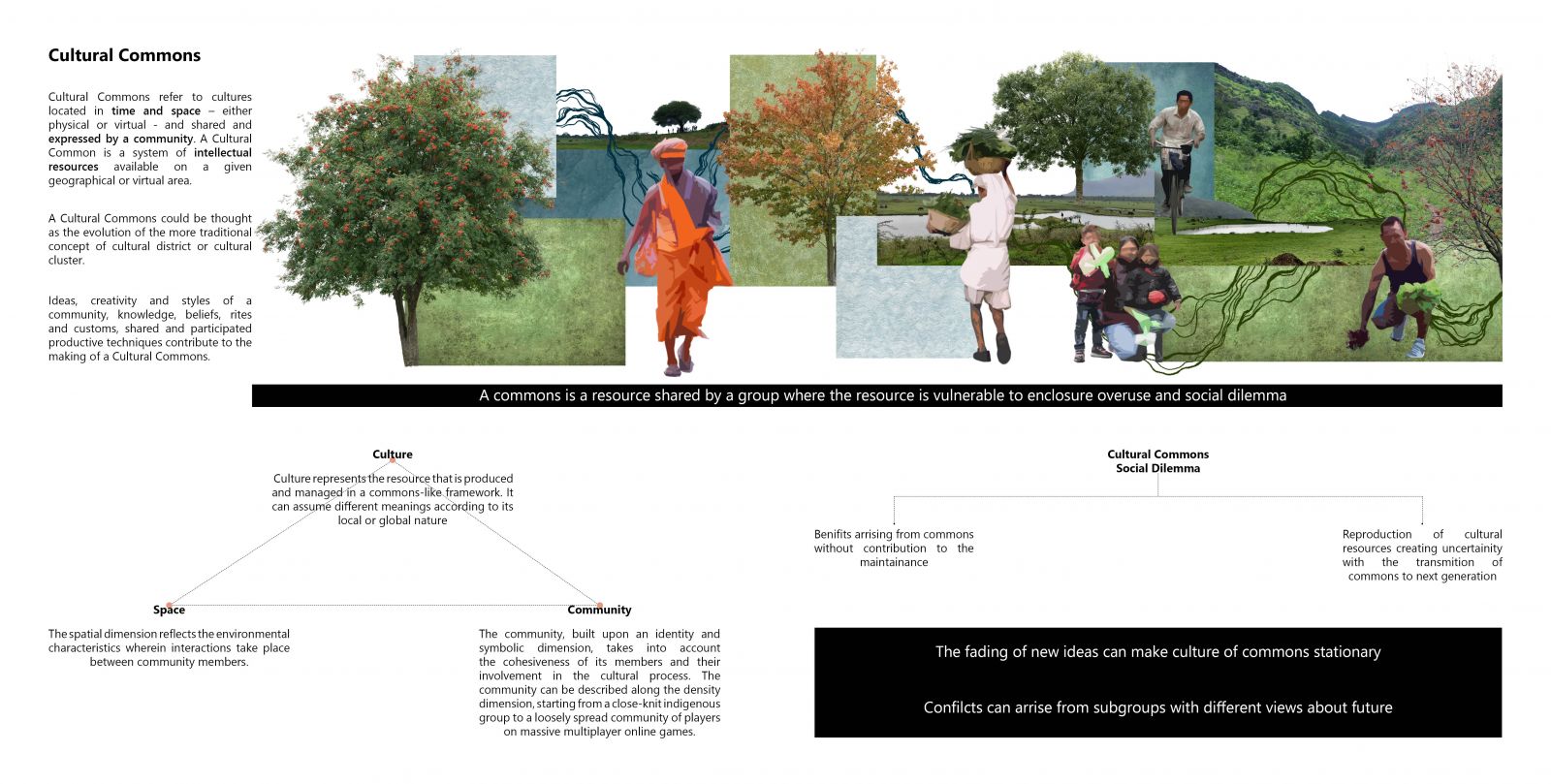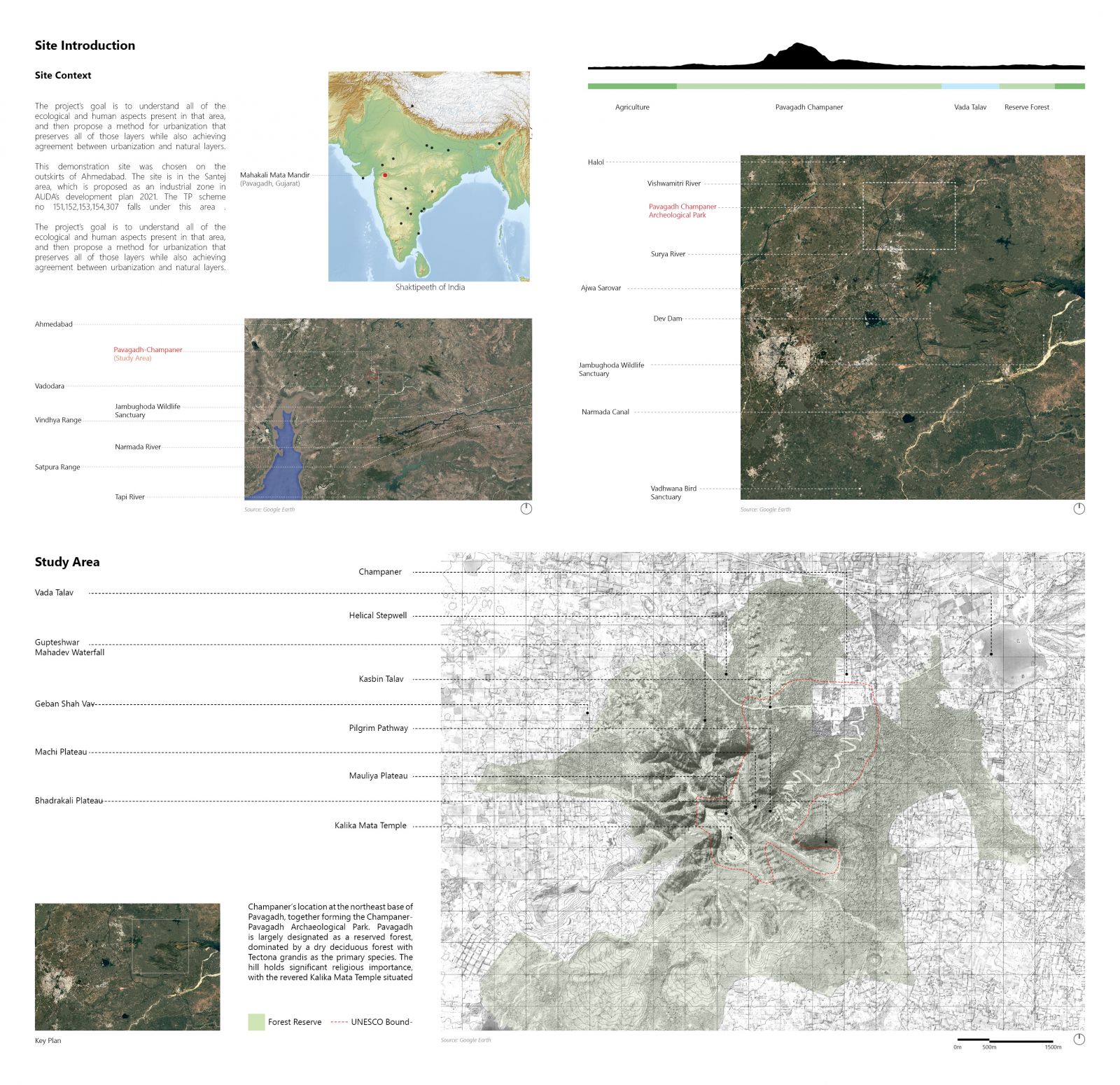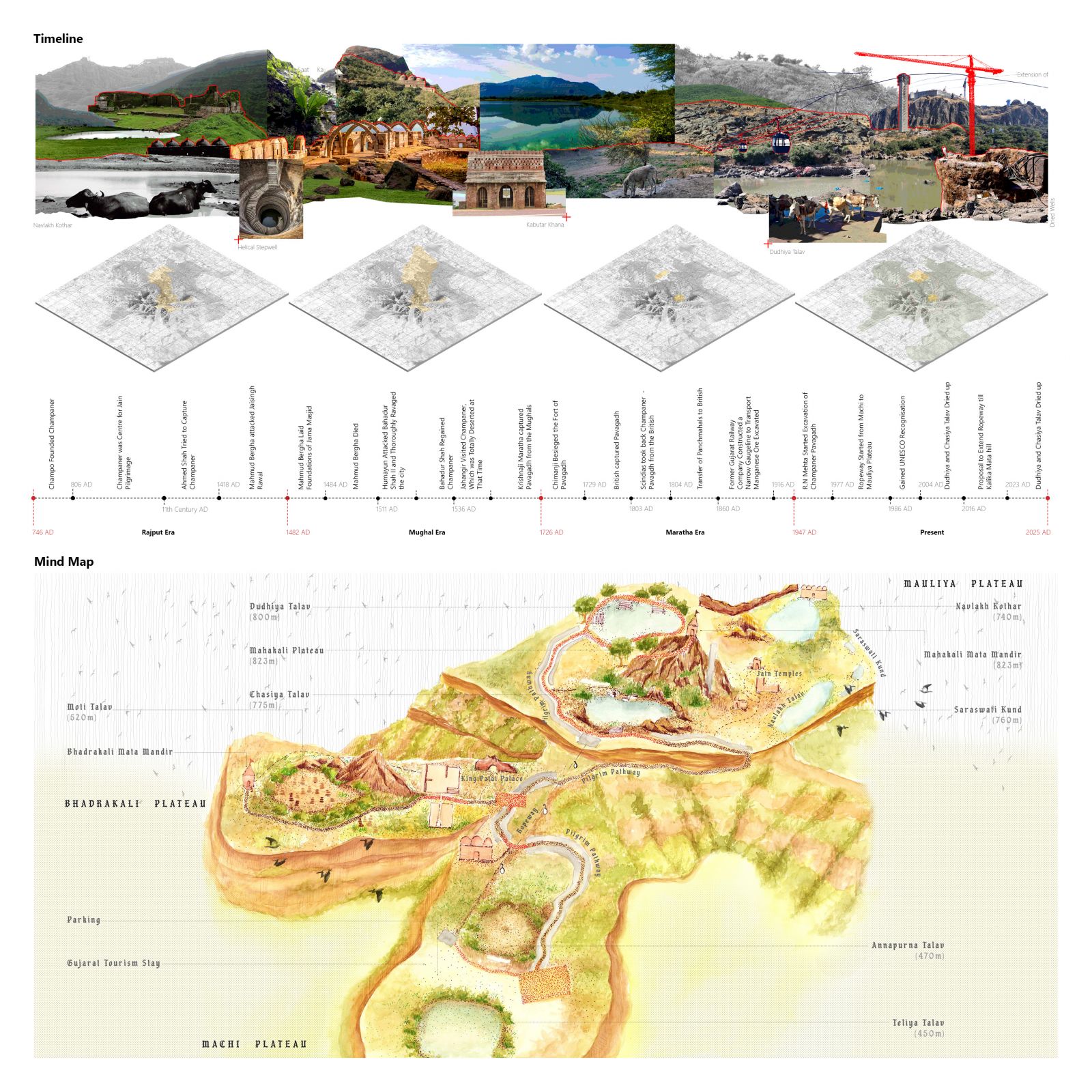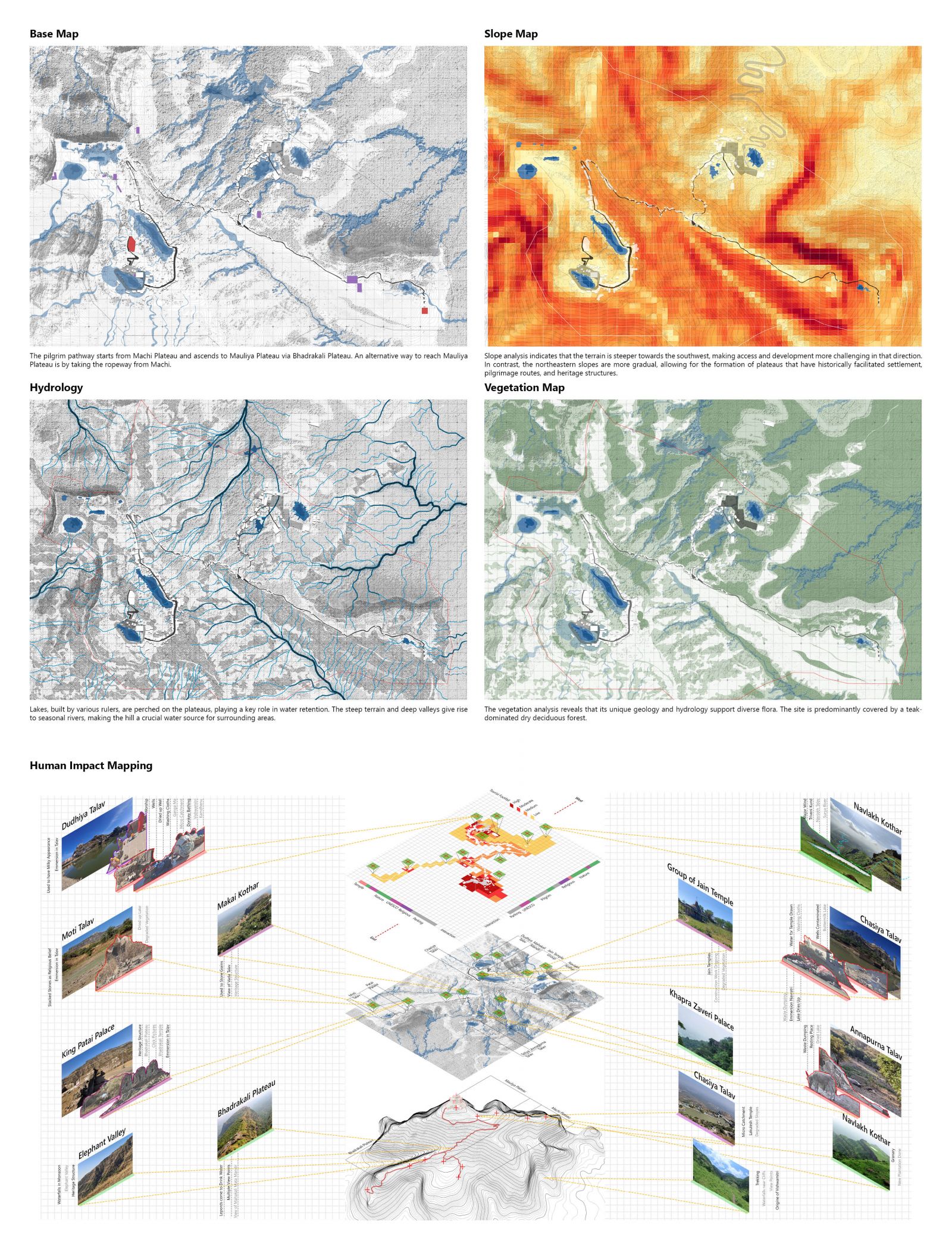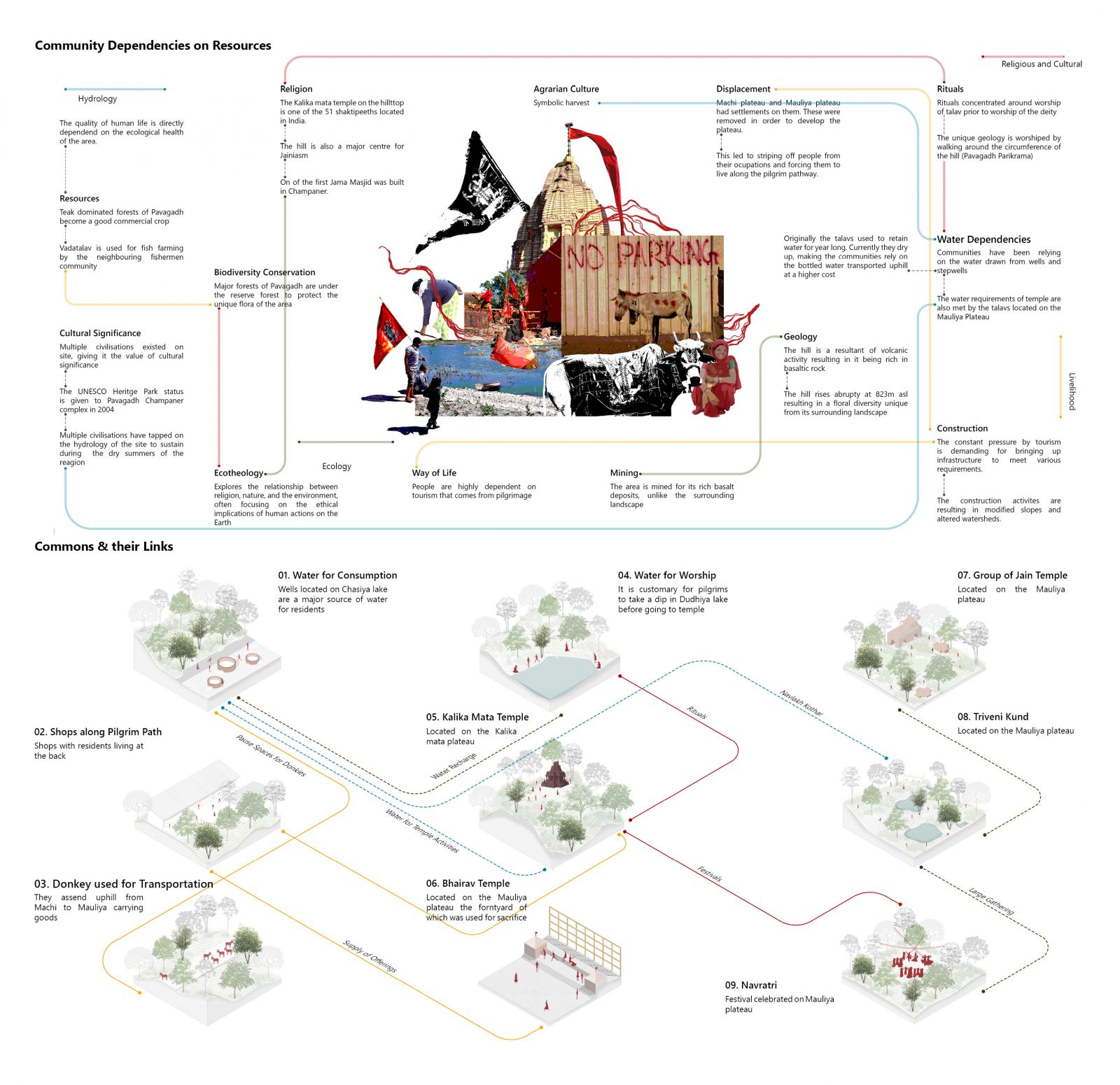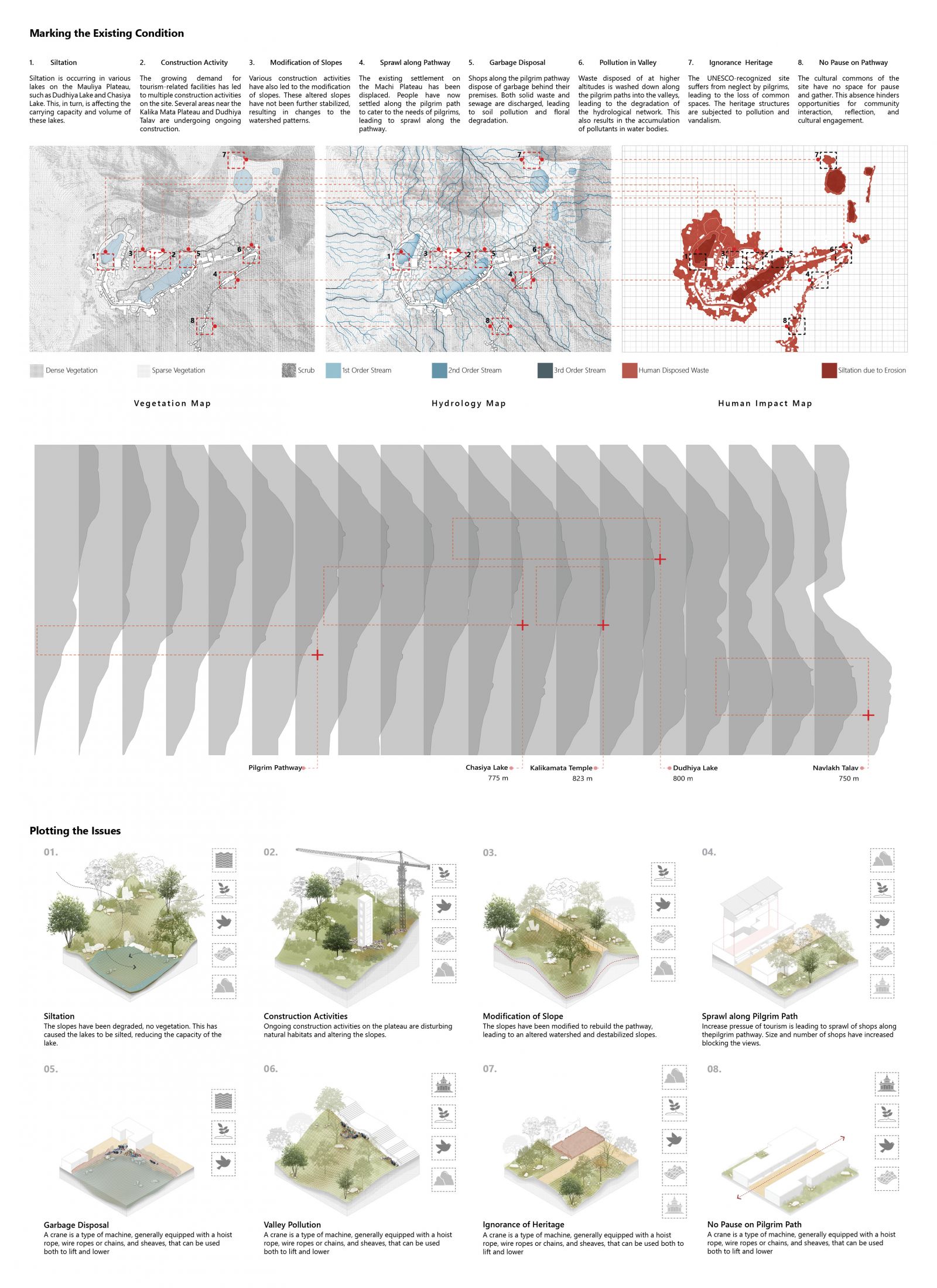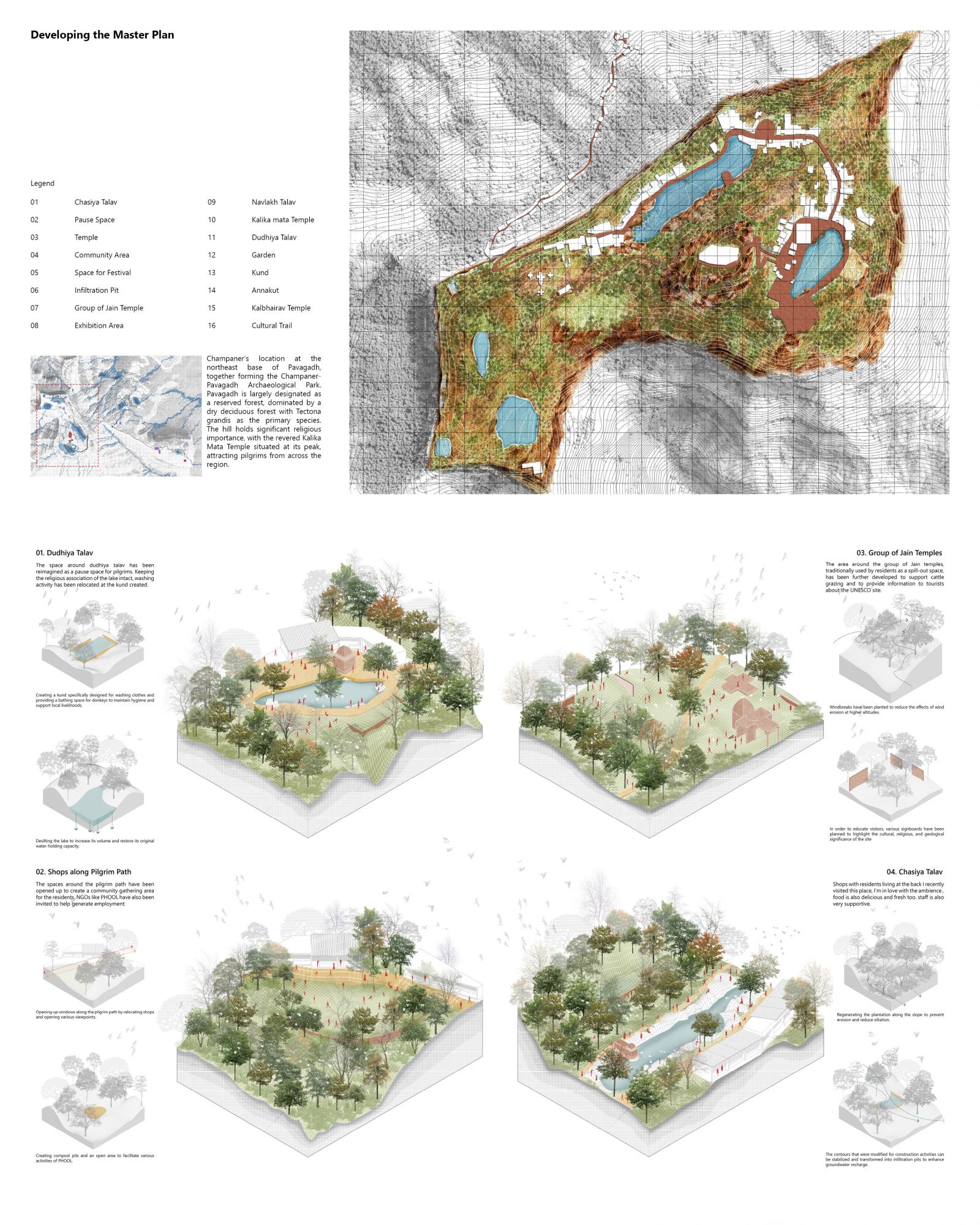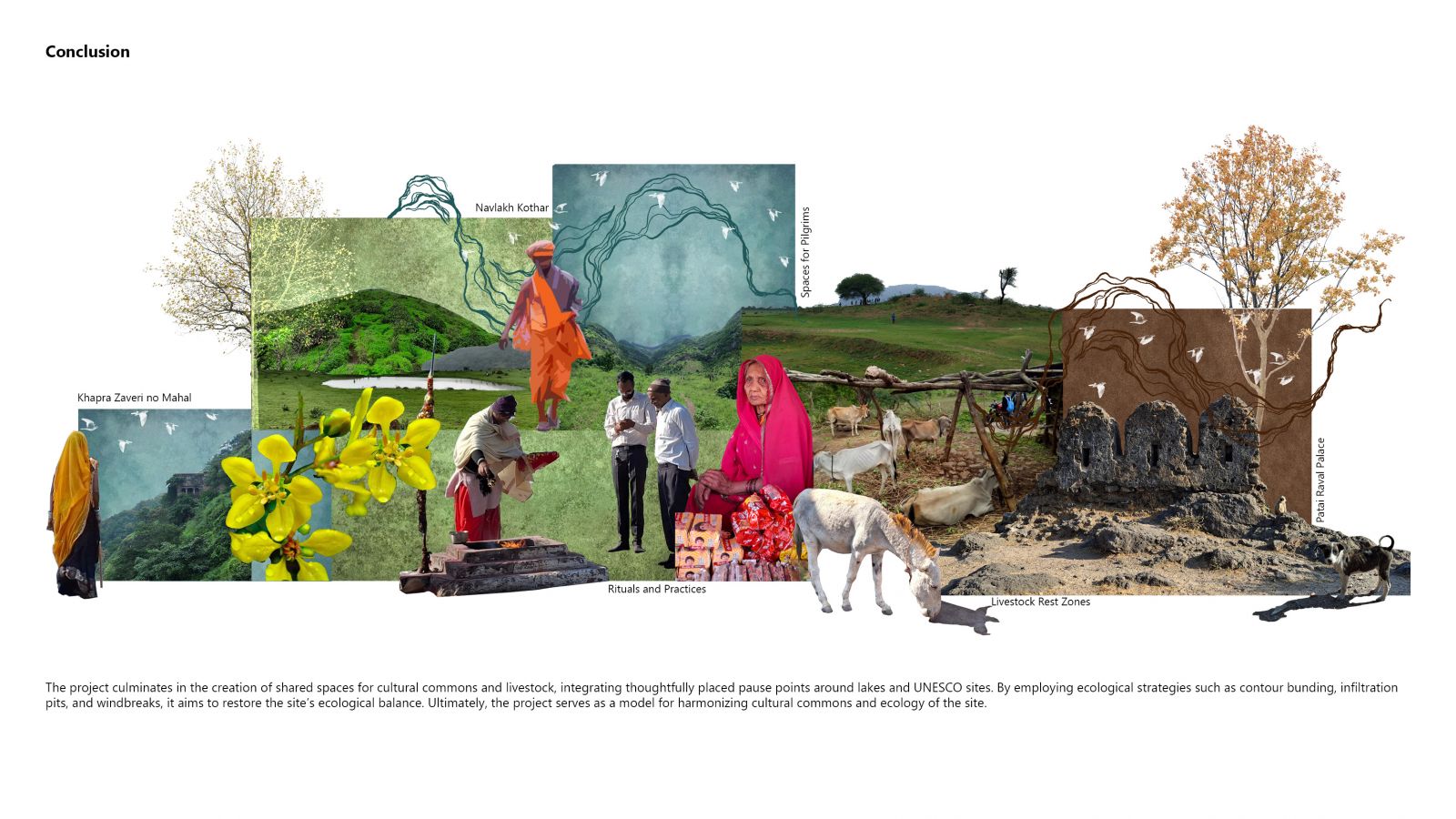Your browser is out-of-date!
For a richer surfing experience on our website, please update your browser. Update my browser now!
For a richer surfing experience on our website, please update your browser. Update my browser now!
Champaner-Pavagadh, a UNESCO World Heritage Site in Gujarat, is a historically and geologically significant landscape. Pavagadh Hill, an ancient volcanic formation, rises above the historic town of Champaner, creating a dramatic terrain rich in cultural and ecological layers. The site is a living repository of heritage, featuring forts, mosques, temples, step-wells, tombs, and other structures dating from the 8th to 14th century. However, increasing anthropogenic pressure—driven largely by religious pilgrimage—is severely impacting the landscape. The plateaus are facing deforestation and soil erosion due to unmanaged footfall and infrastructure, while the valleys too are eroding under ecological stress. These changes are compromising the quality and availability of commons—shared cultural and ecological resources—thus eroding the intellectual and environmental value embedded in the site. This project proposes a planning and design approach that restores ecological resilience while strengthening cultural commons. By addressing erosion, reorganizing pilgrim movement, and reimagining shared spaces, the project aims to create a more sustainable and context-sensitive framework for conserving both the tangible and intangible heritage of Champaner-Pavagadh.
View Additional Work